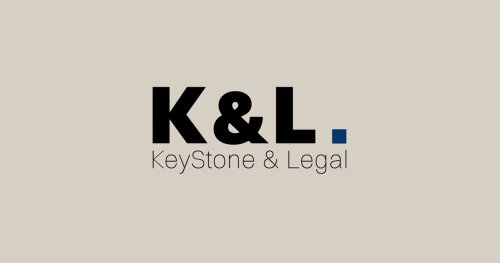Best International Lawyers in South Korea
Share your needs with us, get contacted by law firms.
Free. Takes 2 min.
Or refine your search by selecting a city:
List of the best lawyers in South Korea
About International Law in South Korea
International law in South Korea encompasses agreements, treaties, conventions, and legal frameworks that South Korea has with other countries and international organizations. It covers a broad spectrum of issues including trade regulations, diplomatic relations, conflict resolutions, and human rights. Given South Korea’s active role in the international community and global trade, international law is a critical area, involving both public international law and private international law matters.
Why You May Need a Lawyer
Engaging with international law in South Korea may necessitate legal assistance in several situations. For instance, foreign businesses entering the Korean market will need guidance on local regulations and compliance with international trade agreements. Expatriates and international students might require legal help navigating visa regulations and understanding their rights. Additionally, involvement in cross-border disputes, negotiations of international contracts, and human rights issues can also warrant the expertise of a lawyer specializing in international law.
Local Laws Overview
Several local laws are particularly pertinent to international matters in South Korea:
- Foreign Investment Promotion Act: Governs conditions for foreign entities investing in South Korea.
- Immigration Act: Details the requirements and processes for foreigners entering South Korea, including visa categories and employment guidelines.
- Customs Act: Regulates the import and export of goods, in line with international trade agreements.
- International Trade Law: Encompasses Korea’s obligations under the World Trade Organization and free trade agreements.
- Korean Arbitration Act: Provides a framework for resolving international commercial disputes.
Frequently Asked Questions
What is the process for foreign companies to establish a business in South Korea?
Foreign companies can establish a business in South Korea by registering with the Ministry of Trade, Industry, and Energy, obtaining necessary business licenses, and adhering to local regulations on foreign investments.
How are international commercial disputes resolved in South Korea?
International commercial disputes are frequently resolved through arbitration, as per the Korean Arbitration Act, and organizations such as the Korean Commercial Arbitration Board facilitate these processes.
What are the general visa requirements for working in South Korea?
Work visas typically require a job offer from a Korean employer, who sponsors the visa application, along with necessary documentation as outlined by the Immigration Act.
What are the implications of the Free Trade Agreement (FTA) with South Korea?
FTAs aim to promote trade by reducing tariffs and barriers. Companies must understand the specific provisions and local compliance requirements under these agreements.
Are there restrictions on foreign property ownership in South Korea?
Yes, while foreigners can own property, certain regulations and restrictions may apply, making it advisable to consult with a legal expert.
How does South Korea handle intellectual property rights for foreign entities?
South Korea has robust legal frameworks to protect intellectual property, complying with international standards like the TRIPS agreement.
Can international students work in South Korea?
International students can work part-time within limits specified by their visa type, usually requiring prior permission from immigration authorities.
What should I know about dual citizenship in South Korea?
Dual citizenship is recognized under specific conditions. For instance, children born abroad to Korean parents may retain both citizenships until a certain age.
How do international sanctions affect businesses in South Korea?
Sanctions can impact trade and financial transactions. Businesses must ensure compliance with international sanctions that South Korea adheres to.
What recourse is available for human rights violations involving foreigners?
Foreigners can seek assistance from the National Human Rights Commission of Korea and local courts, which safeguard human rights as part of international obligations.
Additional Resources
For further assistance, consider the following resources:
- Ministry of Justice for immigration and visa-related matters.
- Korea Trade-Investment Promotion Agency (KOTRA) for information on foreign investment.
- Korean Bar Association for finding legal specialists in international law.
- Embassies and consulates, which can provide consular assistance and guidance on local laws.
Next Steps
If you need legal assistance in international matters in South Korea, consider the following steps:
- Identify the specific legal issues you are facing and outline them clearly.
- Research and reach out to legal professionals specializing in international law within South Korea.
- Prepare all relevant documentation and information that may assist your legal advisor in providing the best possible guidance.
- Engage with the recommended resources and governmental bodies for additional support and information.
Lawzana helps you find the best lawyers and law firms in South Korea through a curated and pre-screened list of qualified legal professionals. Our platform offers rankings and detailed profiles of attorneys and law firms, allowing you to compare based on practice areas, including International, experience, and client feedback.
Each profile includes a description of the firm's areas of practice, client reviews, team members and partners, year of establishment, spoken languages, office locations, contact information, social media presence, and any published articles or resources. Most firms on our platform speak English and are experienced in both local and international legal matters.
Get a quote from top-rated law firms in South Korea — quickly, securely, and without unnecessary hassle.
Disclaimer:
The information provided on this page is for general informational purposes only and does not constitute legal advice. While we strive to ensure the accuracy and relevance of the content, legal information may change over time, and interpretations of the law can vary. You should always consult with a qualified legal professional for advice specific to your situation.
We disclaim all liability for actions taken or not taken based on the content of this page. If you believe any information is incorrect or outdated, please contact us, and we will review and update it where appropriate.
Browse international law firms by city in South Korea
Refine your search by selecting a city.
















